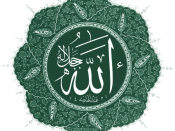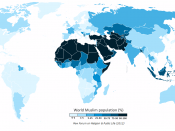Euthanasia is the process of ending life by artificial means. It is to change the uncertainty of the time of natural death depending upon so many seen and unseen, known and unknown factors into the certainty of the time of death by certain known and calculated means through some drugs or injections. Euthanasia is allowed in Netherlands under certain circumstances. There are four types of euthanasia:
Active: the direct willed death of a person
Passive: indirect cause such as 'allowing to die' or 'letting nature take its cause'
Involuntary: carried out on the assumption that had the person been able to express his/her will, he or she would have chosen to die.
Non-voluntary: the decision to terminate life is made for some one who is unable to express his/her own will about it.
The belief regarding the sanctity of life means that our lives are very precious and immense. Everyone is treated equally in this world.
I am going to research Islam and Judaism and see what their view is on euthanasia.
Islam tells us that euthanasia is forbidden in Islam what ever the circumstance. Life is sacred and people are forbidden to kill themselves.
Destroy not yourselves. Surely Allah is ever merciful to you.
Qur'an 4:29
"Nor kill or destroy yourselves, for verily Allah hath been Most Merciful."
Qur'an 4: 29
From the above quote we can see that God tells us in the Qur'an that euthanasia is not allowed as we don't own our bodies but God does so we should not abuse it. The Holy Prophet (s) tells of two companions who were in such pain from injuries received that they lost courage and killed themselves. In respect of one companion the Holy Prophet (s) mentioned that Allah (swt) said "My servant hastened himself to me and...


